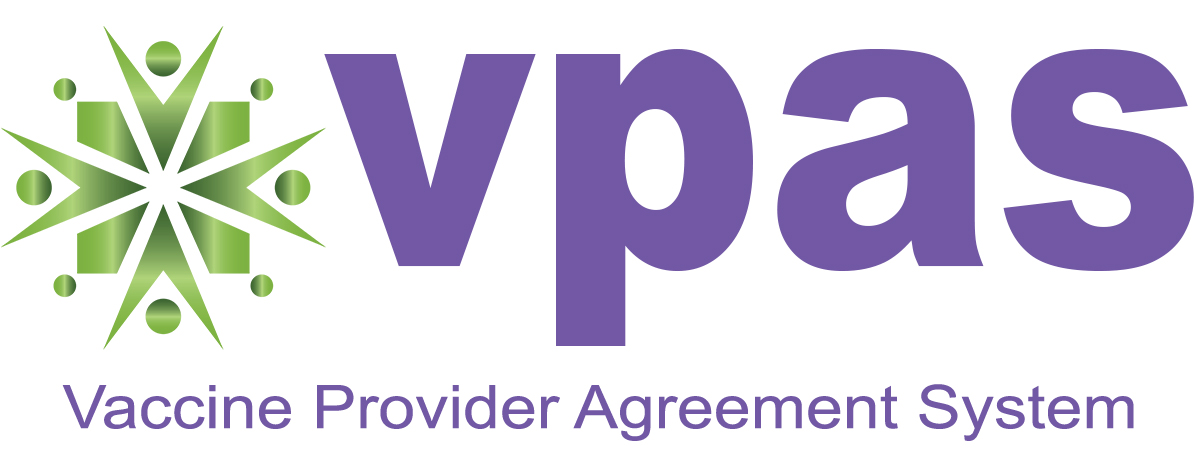 The Office of the Chief Technology Officer’s HHS IDEA Lab has announced the seventh cohort of teams selected for the HHS Ignite Accelerator. The HHS Ignite Accelerator is a program that spurs innovative problem-solving across the Department by encouraging and enabling HHS staff (at all levels) to experiment with novel means for addressing key Departmental challenges...
The Office of the Chief Technology Officer’s HHS IDEA Lab has announced the seventh cohort of teams selected for the HHS Ignite Accelerator. The HHS Ignite Accelerator is a program that spurs innovative problem-solving across the Department by encouraging and enabling HHS staff (at all levels) to experiment with novel means for addressing key Departmental challenges...
US Department of Health and Human Services (HHS)
See the following -
Hiding Our Heads in the Sand - Why the US is Unprepared for Pandemics and Disasters
 A new report from the Trust for America's Health minces no words. President and CEO John Auerbach charges: COVID-19 has shined a harsh spotlight on the country's lack of preparedness for dealing with threats to Americans' well-being. Years of cutting funding for public health and emergency preparedness programs has left the nation with a smaller-than-necessary public health workforce, limited testing capacity, an insufficient national stockpile, and archaic disease tracking systems - in summary, twentieth-century tools for dealing with twenty-first-century challenges.
A new report from the Trust for America's Health minces no words. President and CEO John Auerbach charges: COVID-19 has shined a harsh spotlight on the country's lack of preparedness for dealing with threats to Americans' well-being. Years of cutting funding for public health and emergency preparedness programs has left the nation with a smaller-than-necessary public health workforce, limited testing capacity, an insufficient national stockpile, and archaic disease tracking systems - in summary, twentieth-century tools for dealing with twenty-first-century challenges.
- Login to post comments
HIMSS19: Open Source Software for Disaster Preparedness and Response
 Although not officially listed as a track at the HIMSS19 conference, there are a series of very important presentations on the use of open source software for disaster preparedness and response. This is a critical topic that we have covered extensively in Open Health News. As we detailed in this article, there was a major failure in being able to provide victims of Hurricane Harvey, as well as Hurricane Irma and Hurricane Maria with access to their medical records. Few emergency medical responders could access their records either. The two success stories that came out of the hurricanes were two open source electronic health record (EHR) systems, OpenEMR and the VA's open source VistA EHR.
Although not officially listed as a track at the HIMSS19 conference, there are a series of very important presentations on the use of open source software for disaster preparedness and response. This is a critical topic that we have covered extensively in Open Health News. As we detailed in this article, there was a major failure in being able to provide victims of Hurricane Harvey, as well as Hurricane Irma and Hurricane Maria with access to their medical records. Few emergency medical responders could access their records either. The two success stories that came out of the hurricanes were two open source electronic health record (EHR) systems, OpenEMR and the VA's open source VistA EHR.
- The Future Is Open
- Login to post comments
HLN Releases New Version of Open Source Immunization Forecaster
 HLN Consulting has released a new version of the award winning Immunization Calculation Engine (ICE). ICE is a service-oriented, standards-based immunization forecasting software system that evaluates a patient's immunization history and generates the appropriate immunization recommendations. ICE can be used in Immunization Information Systems (IIS), Electronic Health Records (EHR), Health Information Exchanges (HIEs), and Personal Health Record (PHR) Systems. The release includes changes to the rules for several vaccine series, including Polio, Meningococcal ACWY, and Influenza.
HLN Consulting has released a new version of the award winning Immunization Calculation Engine (ICE). ICE is a service-oriented, standards-based immunization forecasting software system that evaluates a patient's immunization history and generates the appropriate immunization recommendations. ICE can be used in Immunization Information Systems (IIS), Electronic Health Records (EHR), Health Information Exchanges (HIEs), and Personal Health Record (PHR) Systems. The release includes changes to the rules for several vaccine series, including Polio, Meningococcal ACWY, and Influenza.
- Login to post comments
HLN Releases Open Source Vaccine Provider Agreement System

HLN Consulting has just released a critical application to help complete the CDC's COVID-19 vaccination provider agreement requirements. HLN is a leading public health informatics consulting company that is focused on developing andsupporting robust open source solutions that address pressing public health requirements. HLN's application is designed to assist medical providers with a tool that can enhance and facilitate their tracking of critical vaccination information...
- Login to post comments
HLN Releases Roadmap for Open Source Immunization Forecaster
 On September 7, 2017 HLN Consulting released a product Roadmap for its award winning Immunization Calculation Engine (ICE). ICE is an open source service-oriented, standards-based immunization forecasting software system that evaluates a patient's immunization history and generates the appropriate immunization recommendations. The Roadmap describes modifications that have already been scheduled for inclusion in new releases of ICE in the near future, in addition to ongoing changes that may be required to maintain compliance with Advisory Committee on Immunization Practices (ACIP) recommendations...
On September 7, 2017 HLN Consulting released a product Roadmap for its award winning Immunization Calculation Engine (ICE). ICE is an open source service-oriented, standards-based immunization forecasting software system that evaluates a patient's immunization history and generates the appropriate immunization recommendations. The Roadmap describes modifications that have already been scheduled for inclusion in new releases of ICE in the near future, in addition to ongoing changes that may be required to maintain compliance with Advisory Committee on Immunization Practices (ACIP) recommendations...
- Login to post comments
HLN Releases v 1.9.1.0 of its Open Source Immunization Forecaster
 HLN Consulting has released a new version of the award winning Immunization Calculation Engine (ICE). ICE is a service-oriented, standards-based immunization forecasting software system that evaluates a patient's immunization history and generates the appropriate immunization recommendations. ICE can be used in Immunization Information Systems (IIS), Electronic Health Records (EHR), Health Information Exchanges (HIEs), and Personal Health Record (PHR) Systems...
HLN Consulting has released a new version of the award winning Immunization Calculation Engine (ICE). ICE is a service-oriented, standards-based immunization forecasting software system that evaluates a patient's immunization history and generates the appropriate immunization recommendations. ICE can be used in Immunization Information Systems (IIS), Electronic Health Records (EHR), Health Information Exchanges (HIEs), and Personal Health Record (PHR) Systems...
- Login to post comments
HLN's Immunization Calculation Engine (ICE) chosen as a Digital Public Goods Standard
 HLN Consulting is thrilled to announce that the Immunization Calculation Engine (ICE) project has been chosen by the Digital Public Goods Alliance (DPGA) as an innovative openly licensed technology and listed in their Digital Public Goods registry. Technologies included in the list are considered to be digital public goods in alignment with the Digital Public Goods Standard. ICE now appears in the Digital Public Goods registry where it is discoverable as a digital public good and reflected on a growing network of catalogs and aggregated lists of digital public goods.
HLN Consulting is thrilled to announce that the Immunization Calculation Engine (ICE) project has been chosen by the Digital Public Goods Alliance (DPGA) as an innovative openly licensed technology and listed in their Digital Public Goods registry. Technologies included in the list are considered to be digital public goods in alignment with the Digital Public Goods Standard. ICE now appears in the Digital Public Goods registry where it is discoverable as a digital public good and reflected on a growing network of catalogs and aggregated lists of digital public goods.
- Login to post comments
How Community Health Centers Support Patient-Centered Care
Each year, HHS celebrates Community Health Centers week. It is a time where the agency recognizes the impact community health centers have on patient-centered care and how they promote access to care in vulnerable or medically underserved populations...
- Login to post comments
Humetrix to Unveil its Medicare Approved iBlueButton 8.0 Mobile Platform at CES in Vegas
 At CES, Humetrix will unveil at booth 43943 of the Tech West/Sands Expo Health & Wellness Marketplace, its iBlueButton 8.0 mobile health platform approved by the Centers for Medicare and Medicaid Services (CMS) for use by 53 million Americans covered by Medicare. A consumer life and cost saving digital health tool, iBlueButton 8.0 was introduced at the White House Blue Button Conference in August 2018 to illustrate how CMS approved applications powered by the Medicare Blue Button claim database can help millions of Americans in the Medicare program better manage their often complex and at times error-prone healthcare.
At CES, Humetrix will unveil at booth 43943 of the Tech West/Sands Expo Health & Wellness Marketplace, its iBlueButton 8.0 mobile health platform approved by the Centers for Medicare and Medicaid Services (CMS) for use by 53 million Americans covered by Medicare. A consumer life and cost saving digital health tool, iBlueButton 8.0 was introduced at the White House Blue Button Conference in August 2018 to illustrate how CMS approved applications powered by the Medicare Blue Button claim database can help millions of Americans in the Medicare program better manage their often complex and at times error-prone healthcare.
- Login to post comments
Hurricanes Harvey and Irma Draw the Line - Time for the US to Embrace Open Source Emergency and Disaster Response
 For nearly 20 years now the global open source community and applications have been a keystone to disaster relief efforts around the world. The enormous number of disaster relief applications and knowledge that has been developed through all these years, should, and needs to be leveraged in the current crisis. For that reason, Open Health News is starting a series of articles to highlight some of the most important solutions. A substantial portion the open source applications for emergency and disaster response that exist are actually already on the news website in the form of articles and resource pages.
For nearly 20 years now the global open source community and applications have been a keystone to disaster relief efforts around the world. The enormous number of disaster relief applications and knowledge that has been developed through all these years, should, and needs to be leveraged in the current crisis. For that reason, Open Health News is starting a series of articles to highlight some of the most important solutions. A substantial portion the open source applications for emergency and disaster response that exist are actually already on the news website in the form of articles and resource pages.
- The Future Is Open
- Login to post comments
Ignite Accelerator Announces 14 Teams Selected for the Seventh Round of the Internal Innovation Training Program
- Login to post comments
Inside Big Pharma's Fight to Block Recreational Marijuana
 Marijuana legalization will unleash misery on Arizona, according to a wave of television ads that started rolling out across the state last month. Replete with ominous music, the advertisements feature lawmakers and teachers who paint a bleak future for Arizona’s children if voters approve Proposition 205, a measure that would allow people aged 21 and over to possess an ounce of pot and grow up to six plants for recreational use. “Colorado schools were promised millions in new revenues” when the state approved recreational pot use, says the voiceover in one ad. Instead, schoolchildren were plagued by “marijuana edibles that look like candy”...
Marijuana legalization will unleash misery on Arizona, according to a wave of television ads that started rolling out across the state last month. Replete with ominous music, the advertisements feature lawmakers and teachers who paint a bleak future for Arizona’s children if voters approve Proposition 205, a measure that would allow people aged 21 and over to possess an ounce of pot and grow up to six plants for recreational use. “Colorado schools were promised millions in new revenues” when the state approved recreational pot use, says the voiceover in one ad. Instead, schoolchildren were plagued by “marijuana edibles that look like candy”...
- Login to post comments
Is The 1.5+ Trillion Dollar HITECH Act a Failure?
 Hopefully, the public statements made by President Obama and Vice President Biden will lead to a public debate over the monumental problems that the HITECH Act and proprietary EHR vendors have caused the American people. While the press continues to report the figure of $35 billion as the cost of implementing EHRs, that figure does not tell the entire story. Perhaps the next step is to provide accountability and transparency. That would start with firm numbers regarding the real costs of EHR implementations forced on an unprepared healthcare system by the HITECH Act.
Hopefully, the public statements made by President Obama and Vice President Biden will lead to a public debate over the monumental problems that the HITECH Act and proprietary EHR vendors have caused the American people. While the press continues to report the figure of $35 billion as the cost of implementing EHRs, that figure does not tell the entire story. Perhaps the next step is to provide accountability and transparency. That would start with firm numbers regarding the real costs of EHR implementations forced on an unprepared healthcare system by the HITECH Act.
- The Future Is Open
- Login to post comments
Is the US Finally Ready to Get Serious About Biodefense?
 Biological and other disaster threats - whether accidental, driven by forces of nature, or intentional - pose fairly grave risks to the United States and the world. Situational awareness has been a conspicuous topic ever since the 9/11 attacks and the anthrax scare that followed shortly thereafter. Since then we have experienced numerous disasters: health impacts of major weather events such as hurricanes and earthquakes, new virus outbreaks like Ebola in Africa, raging wildfires on the West Coast (I live in California), and the ever-present threat of pandemic flu which a hundred years ago infected some 500 million people across the globe and killed an estimated 50 million people worldwide, according to the Center for Disease Control and Preparedness (CDC). But since the initial flurry of public health preparedness funds in the ensuing several years after the 9/11 attacks, this topic has not had a high priority at CDC nor the funding necessary to implement it successfully.
Biological and other disaster threats - whether accidental, driven by forces of nature, or intentional - pose fairly grave risks to the United States and the world. Situational awareness has been a conspicuous topic ever since the 9/11 attacks and the anthrax scare that followed shortly thereafter. Since then we have experienced numerous disasters: health impacts of major weather events such as hurricanes and earthquakes, new virus outbreaks like Ebola in Africa, raging wildfires on the West Coast (I live in California), and the ever-present threat of pandemic flu which a hundred years ago infected some 500 million people across the globe and killed an estimated 50 million people worldwide, according to the Center for Disease Control and Preparedness (CDC). But since the initial flurry of public health preparedness funds in the ensuing several years after the 9/11 attacks, this topic has not had a high priority at CDC nor the funding necessary to implement it successfully.
- Login to post comments
Killer Care: How Medical Error Became America's Third Largest Cause of Death, And What Can Be Done About It
 ...The following year, researchers shook the profession with an article in Health Affairs entitled “‘Global Trigger Tool’ Shows that Adverse Events in Hospitals May be Ten Times Greater than Previously Measured.” Dr. David Classen, who did the seminal research for global triggers, served as lead author of the study, which looked at three mid-size to large (ranging from 550 to 1,000 beds) teaching hospitals associated with medical schools in the West and Northwest that participated on the condition of anonymity...When different detection methods were applied, global triggers found over 90 percent of events, the government’s Patient Safety Indicators (based on discharge summaries) found 8.5 percent, and voluntary reporting disclosed only 2 percent (afraid of censure and malpractice, doctors and nurses seldom willingly self-accuse). Classen, et al. warned: “reliance on voluntary reporting and the Patient Safety Indicators could produce misleading conclusions about the current safety of care in the U.S. health-care system and misdirect efforts to improve patient safety.”...
...The following year, researchers shook the profession with an article in Health Affairs entitled “‘Global Trigger Tool’ Shows that Adverse Events in Hospitals May be Ten Times Greater than Previously Measured.” Dr. David Classen, who did the seminal research for global triggers, served as lead author of the study, which looked at three mid-size to large (ranging from 550 to 1,000 beds) teaching hospitals associated with medical schools in the West and Northwest that participated on the condition of anonymity...When different detection methods were applied, global triggers found over 90 percent of events, the government’s Patient Safety Indicators (based on discharge summaries) found 8.5 percent, and voluntary reporting disclosed only 2 percent (afraid of censure and malpractice, doctors and nurses seldom willingly self-accuse). Classen, et al. warned: “reliance on voluntary reporting and the Patient Safety Indicators could produce misleading conclusions about the current safety of care in the U.S. health-care system and misdirect efforts to improve patient safety.”...